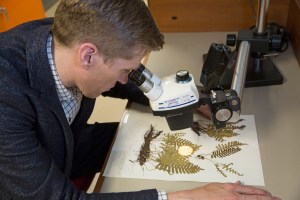Tag: Animals
-
Campus & Community
When the falcons come home to roost
Birds of prey have rebounded since DDT era and returned to Memorial Hall. Now new livestream camera offers online visitors front row seat of storied perch.

-
Science & Tech
A taste for microbes
New research reveals how the octopus uses arms to sense chemical clues from microbiomes
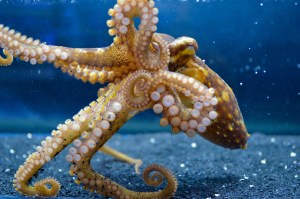
-
Science & Tech
A step in fight against tick-borne disease
New molecular method differentiates sexes, reveals whether females have mated
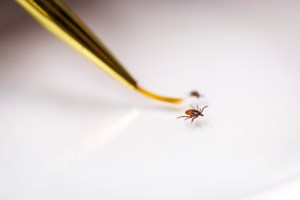
-
Arts & Culture
He studies dogs’ faces. She studies their brains.
‘Dogist‘ Instagram photographer, Harvard scientist swap insights on human-canine bond
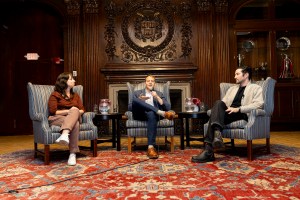
-
Science & Tech
Turns out, bonobos ‘talk’ a lot like humans
Researchers compile dictionary of vocalizations suggesting the animals use equivalent of word compounds, phrasings to communicate complex social situations

-
Science & Tech
Ever wonder why your dog does this?
Study decodes neural mechanism that causes hairy mammals to shake their fur when wet
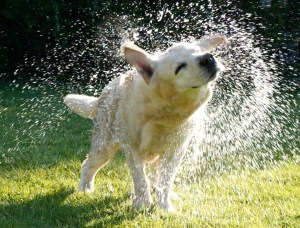
-
Science & Tech
How humans evolved to be ‘energetically unique’
Metabolic rates outpaced ‘couch potato’ primates thanks to sweat, says new study
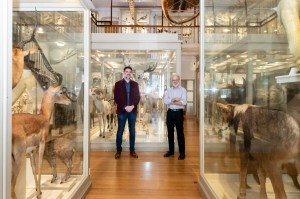
-
Science & Tech
How mammals got their stride
Revealing twists, turns of evolution from sprawling to upright posture
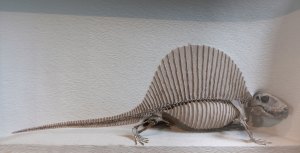
-
Science & Tech
Big discovery about microscopic ‘water bears’
Bit of happenstance, second look at ancient fossils leads to new insights into evolution of tardigrade, one of most indestructible life forms on planet

-
Science & Tech
How whales and dolphins adapted for life on the water
Backbones of ocean-dwelling mammals evolved differently than those of species living closer to shore, study finds
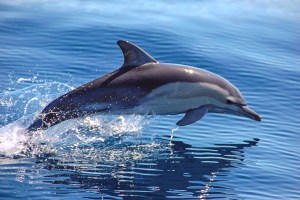
-
Science & Tech
Blue, green, gold: Why eyes of wild cats vary in color
Study traces iris diversity to gray-eyed ancestor
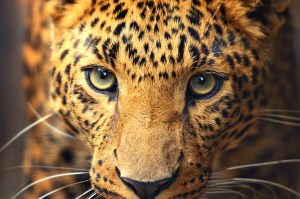
-
Science & Tech
An idea with legs
Research suggests the scuttling sea robin may serve as evolutionary model for trait development, including in humans
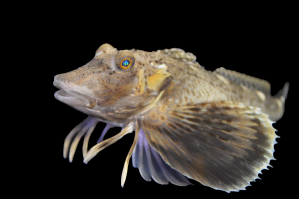
-
Health
In the gut microbiome, at least, it’s nurture, not nature
Environmental factors such as diet make major impacts in the gut microbiome, a new study shows.
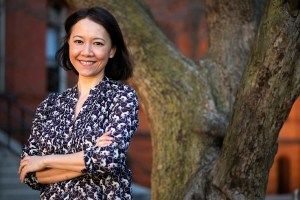
-
Campus & Community
New faculty: Martin Surbeck
A new member of the faculty of the Department of Human and Evolutionary Biology, Martin Surbeck runs one of the few bonobo research sites in the world.
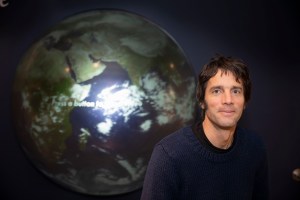
-
Science & Tech
The evolution of flightless birds
Based on an analysis of the genomes of more than a dozen flightless birds, including an extinct moa, a team led by Harvard researchers found that while different species show wide variety in the protein-coding portions of their genomes, they appear to turn to the same regulatory pathways when evolving flight loss.
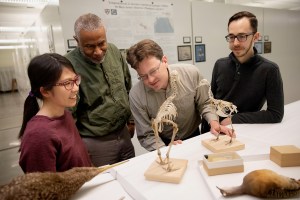
-
Science & Tech
Day of the golden jackal
The surprising success story of the golden jackal in Europe holds lessons about nature’s resilience and about how nature might respond to the evolutionary pressure exerted by humans as we change the natural landscape. The Gazette spoke with doctoral student Nathan Ranc for insight.
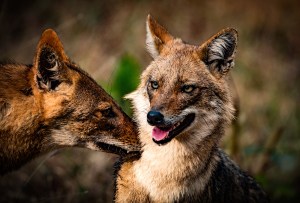
-
Science & Tech
Beware the deeper water
For the past decade, scientist Greg Skomal and a team of researchers have been tagging and studying great white sharks off the Massachusetts coast. He hopes his work tracking the sharks’ movement, biology, and behavior will help shed light on the giant predators, help protection efforts, and perhaps reduce their encounters with humans.
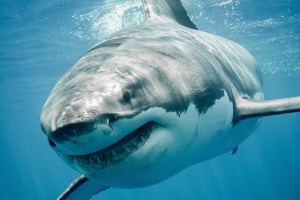
-
Nation & World
Autism as a facet of experience, not a limit
Temple Grandin, a professor of animal science at Colorado State, brought her experience as an advocate for autistics to a talk at the Ed School.
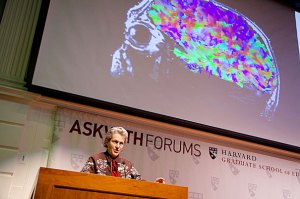
-
Health
Rock sleuths
In one of the largest studies of its kind, Harvard researchers have found that carbon records from the mid-Neoproterozoic era can be “read” as a faithful snapshot of the surface carbon cycle between 717 million and 635 million years ago, a finding that directly challenges a decades-long belief of most scientists.
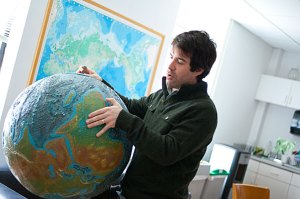
-
Campus & Community
All creatures great and small
Viewing all life as interconnected, Australian equine specialist Mark Schembri will use his degree from the Harvard School of Public Health to help humans and animals live healthier.
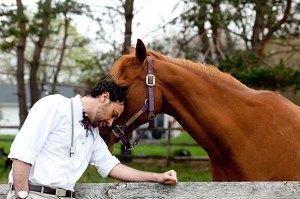
-
Campus & Community
Wild Harvard
Nature watchers around campus, open to the hard-to-see creatures nearby, deliver a message of attention and affection.
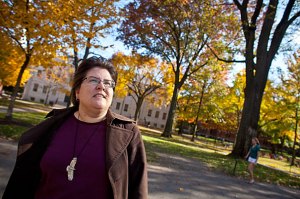
-
Campus & Community
E.O. Wilson to lecture, co-host conservation benefit dinner
E.O. Wilson will host a lecture and dinner with biologist Daniel H. Janzen on Oct. 1 to benefit Area de Conservación Guanacaste, 163,000 hectares of tropical treasure in northwestern Costa Rica.
-
Campus & Community
More than just meat
Vegan Carol J. Adams speaks about meat eating as more than violence against animals, saying that it’s also often an expression of violence against women.
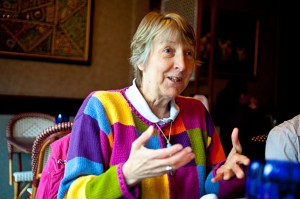
-
Health
Hey squash, time for your close-up
Bruce Smith, of the Smithsonian National Museum of Natural History, discusses the rise of agriculture in a talk at the Harvard Museum of Natural History.
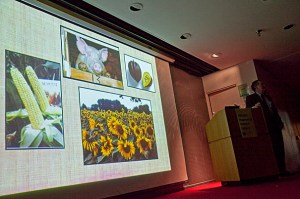
-
Campus & Community
Around the Schools: Faculty of Arts and Sciences
What’s small, four-legged, and leaves dusty paw prints on telescope mirrors? That’s what astronomers at the Harvard-Smithsonian’s Whipple Observatory in southern Arizona were trying to find out.
-
Science & Tech
Trading energy for safety, bees extend legs to stay stable in wind
New research shows some bees brace themselves against wind and turbulence by extending their sturdy hind legs while flying. But this approach comes at a steep cost, increasing aerodynamic drag and the power required for flight by roughly 30 percent, and cutting into the bees’ flight performance.
-
Health
Evolution explored from all angles
From humanity’s close relationship to chimpanzees to the missing link between land and sea creatures, the Harvard Museum of Natural History (HMNH) has capped off a year celebrating Darwin and “On the Origin of Species” with a new exhibit that puts evolution front and center.
-
Science & Tech
Vocal mimicking, sense of rhythm tied
Researchers at Harvard University have found that humans aren’t the only ones who can groove to a beat — some other species can dance, too. The capability was previously believed to be specific to humans. The research team found that only species that can mimic sound seem to be able to keep a beat, implying…
-
Science & Tech
Climate change an ‘opportunity’ as well as a threat
Conservation pioneer Russell A. Mittermeier started this year’s Roger Tory Peterson Memorial Lecture (April 5) with a quiz. In front of several hundred listeners at Harvard’s Science Center he turned on a small recorder.



